Prostatitis is a common urological disease characterized by inflammatory changes in the prostate gland due to the influence of destructive factors (infectious, occupational, etc. ). The standard treatment regimen for prostatitis depends on the form, course, and pathogen of the disease.
Treatment of prostatitis depends on the type
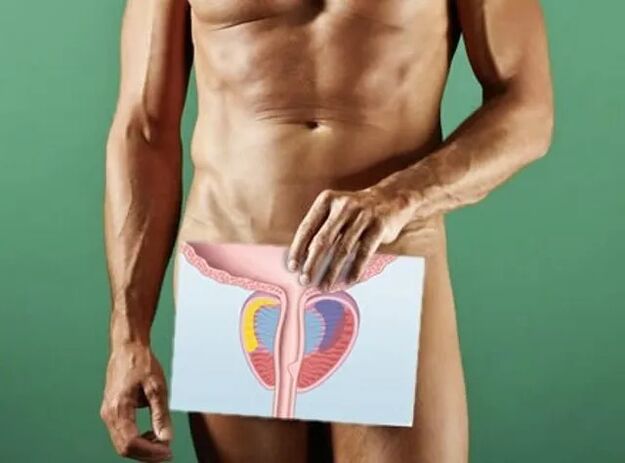
The disease has a multi-etiogenic nature, but the main factor in its occurrence is contagiousness. Therefore, the task of urology is to find rational treatments and fight infections.
Treatment of bacterial prostatitis includes antibiotic therapy. The drug is prescribed after a laboratory diagnosis to determine the pathogen and susceptibility to antibiotics.
Fluoroquinolones, cephalosporins, and tetracyclines were found to be the most effective, according to the results of statistical studies to treat the disease.
Antiviral drugs are used when treating prostatitis caused by herpes, HPV, or cytomegalovirus. Prostatitis of fungal etiology is treated with antifungal agents.
Treatment is often complex due to many factors that contribute to the development of prostatitis and often includes lifestyle modifications aimed at boosting immunity and improving circulation to the pelvic organs.
The list of events includes:
- Dietary nutrition (for preventing constipation);
- Regular physical and sexual activity;
- vitamin therapy;
- Proper sleep and wake patterns.
If prostatitis is caused by a disrupted blood supply to the pelvis, regular physical exercise, massage, and physical therapy exercises (squats, lunges, walking, running) can clear the congestion. In the presence of a potential source of infection (dental caries, sinusitis, tonsillitis), the lesions must be hygienically treated.
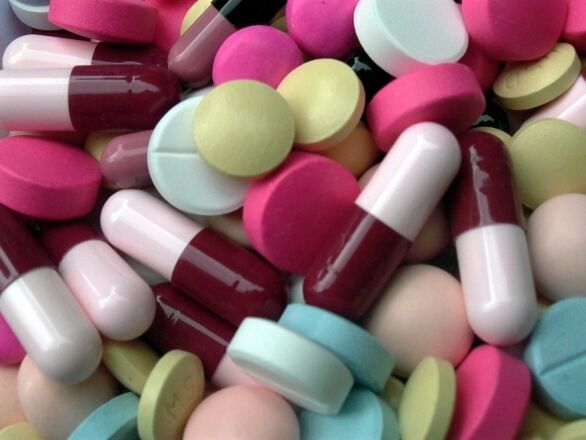
treatment plan
Chronic and acute prostatitis have similar symptoms but different drug exposure regimens. This is because in the acute form, treatment is aimed at fighting infection and stopping unpleasant symptoms, while the chronic form requires physical therapy methods.
List of medicines for acute prostatitis:
- NSAIDs - eliminate discomfort and inhibit the development of inflammatory processes in the glands.
- antibiotic. Pathogens that affect disease. The most commonly used are protected penicillins, macrolides, cephalosporins, fluoroquinolones.
- Antispasmodic. They are used to eliminate glandular pain, improve secretion outflow, relax blood vessel walls and enhance microcirculation.
- Alpha blocker. Improves outflow during acute urinary retention by relaxing the smooth muscles of the urethra and bladder neck. Relieves inflammation in the body and reduces swelling.
- Phytotherapy. They are naturally sourced auxiliary healing agents. Gently affects the prostate, reducing swelling of the organ.
important!In the acute phase of prostatitis, physical therapy measures are contraindicated.
Physical therapy will help spread the infection and exacerbate inflammation.
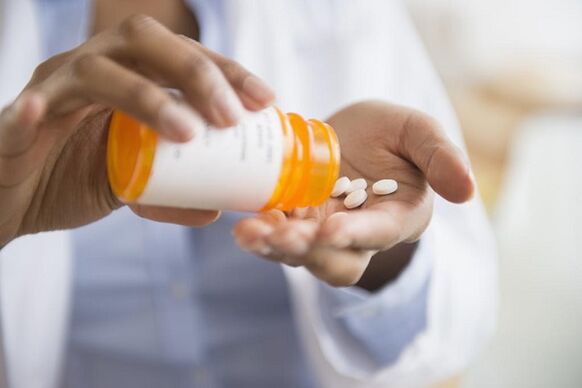
In contrast, chronic prostatitis is primarily treated with physical therapy methods:
- Laser Treatment.
- Acoustophoresis (a combination of ultrasound and drugs).
- electrophoresis.
- exposure to microwaves.
One or more treatments are used at the same time. Surgical intervention (endoscopic approach) is used only in the chronic form, with a sclerotic process and glandular hyperemia. Surgery can significantly improve a patient's quality of life and restore lost function.
Treatment principles of acute prostatitis
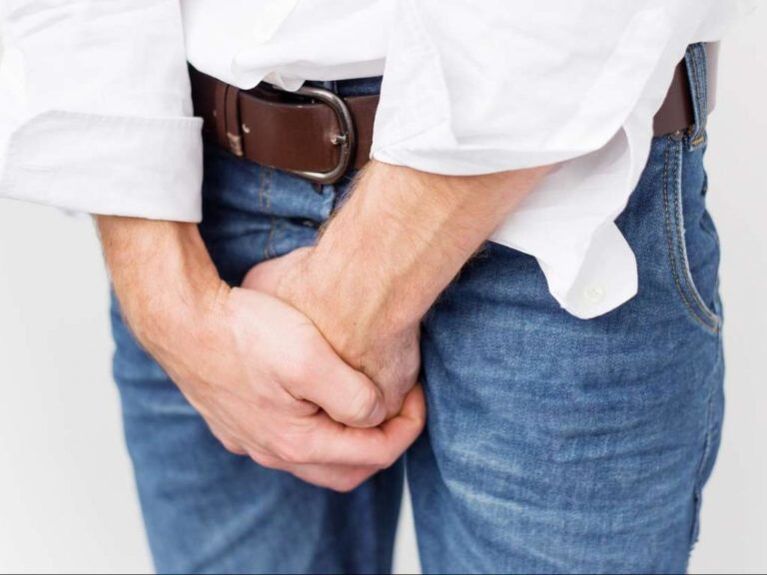
Genitourinary infections are almost always the cause of acute prostatitis. It can be nonspecific (caused by opportunistic microorganisms) and venereal (gardeneriosis, chlamydia, gonorrhea, trichomoniasis, etc. ) infections.
In the first case, the pathogenic microbiota travels from the gut or urinary tract through the lymphatic or hematogenous route to the prostate and causes inflammation there.
In the second case, the pathogen is transmitted from an infected sexual partner.
Treatment for acute prostatitis depends on the type of pathogen and always includes antibiotics. After a thorough examination, the doctor identifies the causative agent and prescribes an appropriate remedy.
Nitroimidazoles are usually prescribed if infection with protozoa (trichomoniasis) occurs. The treatment of intracellular plasmodia infection is the use of macrolide antibiotics.
Alternatives are some other macrolides, fluoroquinolones, and tetracyclines.
Treatment of gonorrhea lesions includes antibiotics and vaccines in the penicillin and cephalosporin groups. Glandular inflammation caused by Gardnerella requires antibiotics (prescription of macrolides, lincosamides, and nitroimidazoles and their analogs).
In the treatment of acute prostatitis caused by nonspecific microflora, standard drug regimens, which also include antibiotics, are used.
Standard treatment options for prostatitis include the following:
- Bed rest, massage and exercise therapy in the acute form in the chronic phase of the disease.
- Diet food.
- Antibiotics suppress the microbial flora that cause prostate inflammation.
- NSAIDs are used as symptomatic drugs to treat pain and fight inflammation.
- Bioregulatory peptides. These are products from bovine prostate. Stimulates the regeneration process of the glands.
- Antispasmodic.
- Muscle relaxants are used to relax the muscles of the bladder, urethra, and perineum.
- Means of improving blood circulation and decongesting hemorheological properties (eg, drugs that improve glandular microcirculation by blocking receptors located in the walls of blood vessels).
- hormonal agents.

Depending on the course and characteristics of prostatitis, other measures (ultrasound, autologous blood transfusion, rectal administration) can be added to the protocol.
To quickly stop symptoms of prostatitis, an intravenous infusion is used.
This treatment takes place in a hospital setting. To stimulate the immune system, tissue preparations and anabolic drugs are prescribed.
Treatment of acute bacterial prostatitis
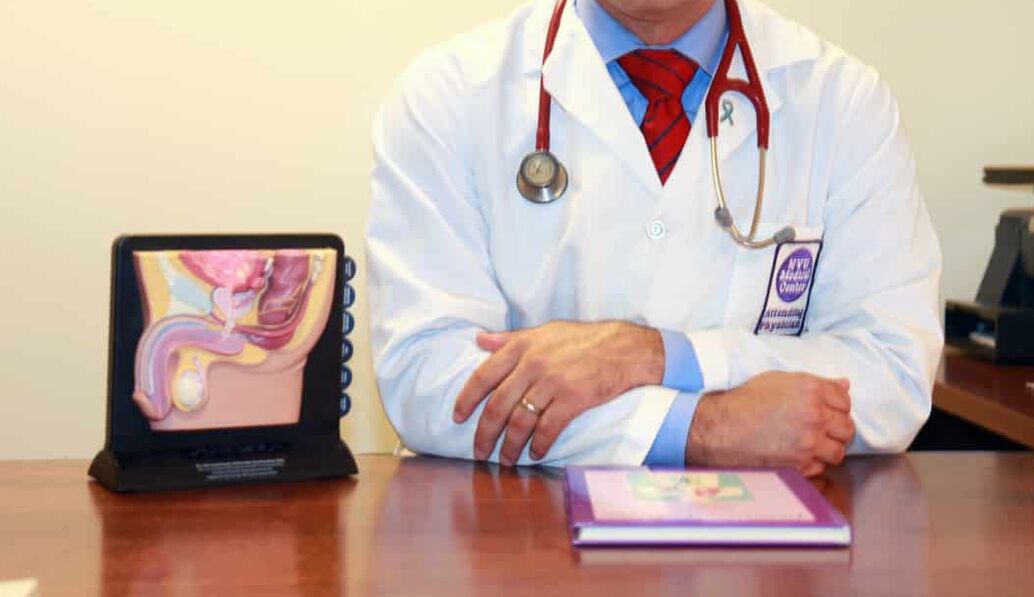
Antimicrobial therapy is indicated for acute illnesses caused by infections. But in some cases it is also prescribed for non-bacterial chronic prostatitis - as an additional measure against the effects of a possible latent infection. Means with a broad antibacterial spectrum are preferred.
The course of treatment is 2 weeks to 1 month. Treatment can be extended to 2 months if there is good motivation for improvement.
The groups of antibiotics most commonly used to treat bacterial prostatitis are:
- protected penicillin. The drug is administered orally 1 g 2 times a day. It is important to take the medication regularly, 12 hours apart. The course of drug exposure varied from one week to 10 days. Penicillin is usually used until laboratory test results are available.
- Second-generation fluoroquinolones, 200 mg twice a day for 1-2 weeks.
- Fluoroquinolones are used for 3 generations at 0. 5 g once a day for 5 days.
- Third-generation cephalosporins. Dispense the drug /m or /1 g 2 times or 2 g 1 time per day for 7-10 days.
- 4th generation cephalosporin 2 g IV or IM daily for 5-7 days.
- Aminoglycosides. Enter 1. 0 g/m 1 time/day for 5-7 days.
- Macrolides. Non-toxic and will not adversely affect the intestinal flora. 500 mg orally 1-2 times daily. The remedy must be taken for at least 5-14 days.
When taking antibiotics to treat prostatitis, it is not recommended that patients reduce the dose and time of treatment on their own. A full course of at least two weeks.
Allergy sufferers should inform their physicians of existing intolerances to specific medications before starting treatment. In the event of impaired liver and kidney function, the specialist may need to adjust the treatment regimen or the dose of the drug, so it is important to warn him in advance.
Treatment options for viral acute prostatitis

Virological diagnostic methods are not included in the examination protocol, so the diagnosis of "viral prostatitis" is usually rarely made by urologists. Herpes infections and HPV are sexually transmitted.
The genital herpes virus enters the body and multiplies before reaching the lymph nodes, from where it spreads to the internal organs via the blood and lymphatic routes.
Following drug exposure, the virus persists and recurs periodically in the spinal cord or cranial ganglia. Often, exacerbations follow hypothermia or weakened immunity.
The culprits of this type of prostatitis are herpes virus, cytomegalovirus, HPV, and the flu. Pathogens are able to penetrate not only the prostate, but also other nearby organs, such as the bladder, urethra, testes, rectum, and can cause severe damage when immunity is weakened.
The causative agent of viral prostatitis can be identified by laboratory analysis. In men, genital herpes appears as blisters and ulcers in the groin, scrotum, perineum, or urethra. Basically, the disease is accompanied by severe itching and burning sensations, but also an asymptomatic course.
Treatments for viral inflammation of the prostate include:
- Take antiviral medication. They are effective in treating herpes and HPV. Their mechanism of action is based on inhibiting the emergence of a new generation of viruses. Specific treatment for 5 days, the first day to reach the maximum therapeutic dose.
- receive immunomodulators.
- To normalize urination, alpha-blockers are prescribed, which relieve smooth muscle tension and promote the flow of urine.
As the HPV or wart disappears, it is sometimes necessary to use electrocoagulation, lasers, or liquid nitrogen to remove the growths. The procedure takes place in a hospital.
Treatment options for acute fungal prostatitis
Prolonged use of antibiotics can lead to the emergence of new species of microorganisms that are resistant to many antimicrobial agents. The increase in the number of patients with fungal prostatitis is due to uncontrolled and progressive addiction to antibiotic use.
As immunity declines, fungi of the genus Candida begin to actively multiply in the body, causing candidiasis.
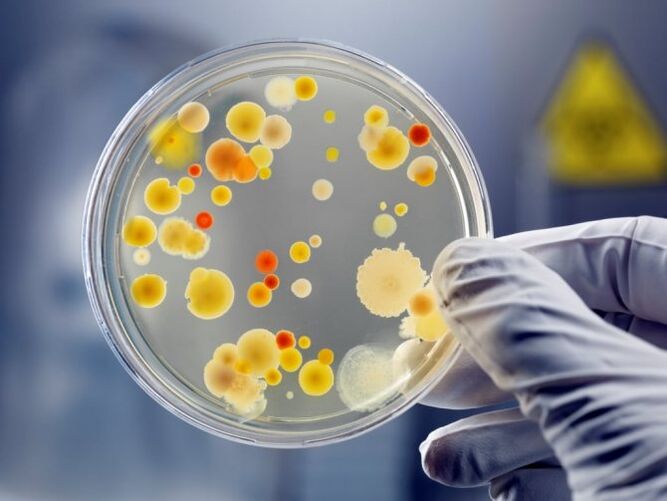
For the treatment of candidal prostatitis:
- Antifungal. Medications are sometimes mixed in different proportions.
- Probiotics with bifidobacteria and lactobacilli. They inhibit the growth of pathogenic flora.
- Immunomodulators that increase the body's defenses.
important!The nutrition of patients with prostate fungal infection should include foods containing probiotics.
These are kefir, yogurt, acidophilus. In addition, it is necessary to limit the use of sweets, pastries, fresh milk, fruits and juices.
in conclusion
It should be remembered that only a urologist can choose a course of medication for the treatment of prostatitis. Self-medication can slow down the healing process and, in the worst case, harm the body, cause severe allergic reactions and help the body adapt to certain antibiotics, so the drugs will no longer be therapeutic.















